Researchers in the Infectious Disease Epidemiology and Ecology Lab (IDEEL) at UNC are process driven investigators with a unique comradery, working in 20+ countries to improve basic understandings of pathogens. The applied nature of their work has a direct impact on the health and well-being of millions of individuals around the globe, while also having an immediate effect on health policies at all levels. IDEEL investigators include: Jon Juliano, MD, MSPH; Jessica Lin, MD; Natalie Bowman, MD, MPH; Jonathan Parr, MD, MPH; Ross Boyce, MD, MSc; Peyton Thompson, MD, MSCR; Michael Emch, PhD; Sylvia Becker-Dreps, MD, MPH; and Emily Ciccone, MD, MHS.
What is the IDEEL Lab?
Jon: IDEEL is a group of principal investigators who share a vision for improving the health of the world’s poorest populations by improving our understanding of the infectious diseases that impact them most. As a platform for collaborative interdisciplinary research that explores how pathogens interact with human hosts, our investigators come from a wide-breadth of backgrounds including infectious disease physicians, epidemiologists, molecular parasitologists, cell biologists, geneticists and geographers. Co-founded with the support of the late Steven Meshnick, MD, PhD, we also collaborate with investigators at Brown University, Imperial College London, UMass Chan Medical School and University of Florida.
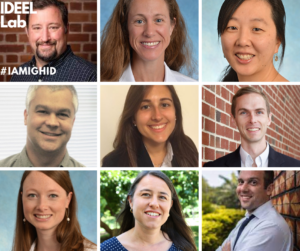
Where do you work and conduct research?
Jon: Our lab space is in the Medical Biomolecular Research Building. We currently occupy two-thirds of the second floor. Altogether, our investigators are conducting research in Tanzania/Zanzibar, Uganda, Democratic Republic of the Congo, Rwanda, Cameroon, Malawi, Zambia, Kenya, Ethiopia, Zimbabwe, Ghana, Gabon, Mali, Madagascar, Peru, Bolivia, Nicaragua, Colombia, China, Bangladesh. We also have collaborators from the United Kingdom, Sweden, Germany and the Czech Republic.
How did you become part of IDEEL and why?
Jon: It goes back to 2015, when I came to UNC as an infectious disease fellow, to work with the late Steve Meshnick. Then, Jessica, Jonathan and Natalie came, and we were getting to a size with a breadth of malaria expertise that was unique and unusual. The lab was formalized because we all believed collaborative team science lets you answer the more important questions about health, rather than trying to do individual investigator-initiated projects.
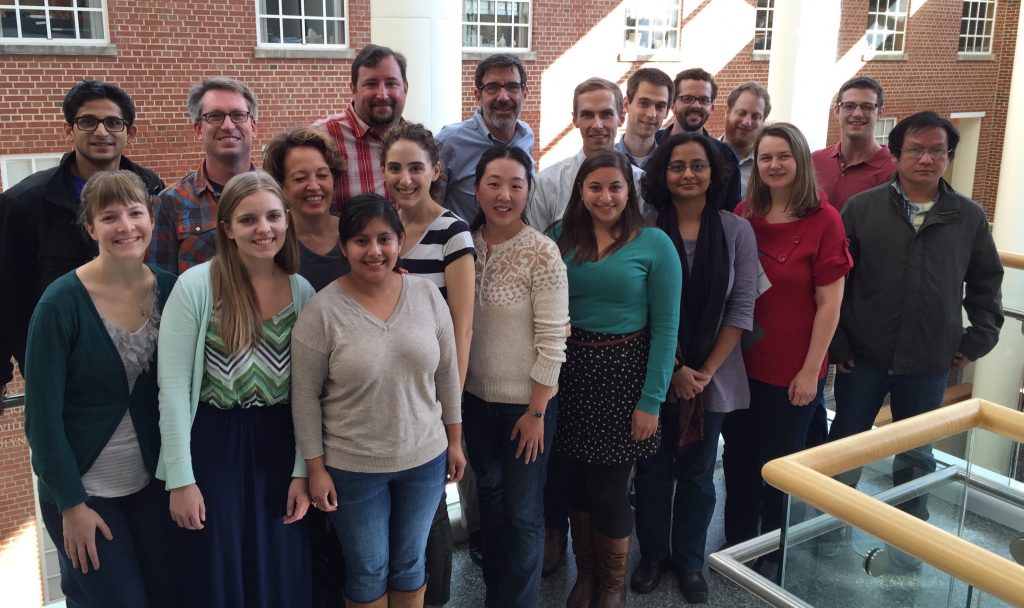
Jessica: When we decided to form IDEEL, it was like codifying something we were already doing, but doing it intentionally, in a way that benefits our students and everyone else. It’s so wonderful that when you have an idea, you have a built-in team to work with. You don’t have to look for support.
Jonathan: One of the major reasons I moved to UNC in 2014 was to work in a group that did both cutting-edge research in the laboratory and impactful work in the field. It’s rare to find research groups populated by such diverse scientists and trainees. The spirit of camaraderie, curiosity, and generosity in the group immediately drew me in. I agree with Jessica, formalizing our highly collaborative research group as “IDEEL” felt natural.
Emily: I was adopted into IDEEL when I started working with my mentors, Dr. Juliano and Dr. Boyce, during fellowship.
Peyton: I first became an ‘IDEEList’ during my fellowship in Pediatric Infectious Diseases in 2017, when I was lucky enough to begin work on Hepatitis B prevention studies in the DRC, with Steve Meshnick and Jonathan Parr. I was welcomed into the group despite being the pediatrician outlier. (;
What is unique about this group?
Jessica: What is special, and attracts a lot of people, is that we are physicians and part of our work is clinical work, the other is scientific investigation, using scientific methods to learn more about pathogens. Many of us are physicians interested in an academic scientific career that impacts public health. These are the intersecting interests.
Jon: We all have our individual interests but there are places where there’s overlap. And so, we end up being co-investigators on each other’s projects. And in a way, the success of one lends to the success of the other.
Emily: It is incredibly fun and motivating to work with a group of people that are so collegial, brilliant, and passionate about the same thing — addressing global health inequities through research on infectious diseases that affect marginalized populations in resource-constrained settings. We are an eclectic group, in terms of specific research focus, yet we are always finding new ways to collaborate and learn from each other.
Peyton: The camaraderie within our IDEEL family is unbeatable. I will have to say that my favorite get-togethers are impromptu hallway meetings or coffee runs, but I also love our planned birthday celebrations (thanks to our incredible lab manager, Oksana Kharabora), tea parties, coffee brewing sessions, Jordan Lake hangouts and holiday gatherings. Because of our unique set-up, we are able to collaborate more than most, and thus expand the impact of our research endeavors.
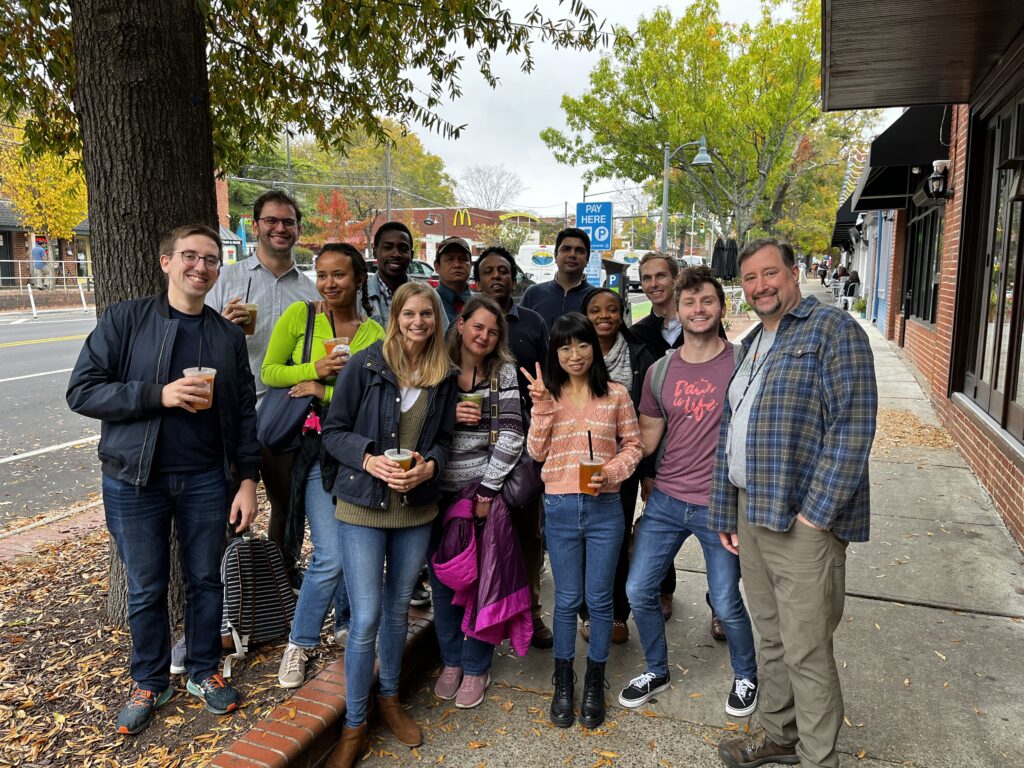
Jonathan: It’s so much fun to work in a collaborative group like IDEEL. This has direct impacts on the science we’re able to do. We are constantly finding ways to translate approaches and methods we’ve developed from one arena to another. One example is our viral hepatitis work, now led by Peyton Thompson. This came about because partners in the Democratic Republic of the Congo asked if we could use the same filter-paper bloodspot samples from our malaria studies to map the prevalence of hepatitis B and C. With the support of several new collaborators, we were able to pull this off, and later used the results to inform development of new impactful projects. Another example is our work on syphilis. We found that many of the methods we used in the lab for malaria genomic sequencing could be easily adapted for studies of syphilis. This led to a productive line of research focused on developing a globally effective syphilis vaccine. Both of these new research avenues were possible because of synergies across the IDEEL group.
What does IDEEL offer learners?
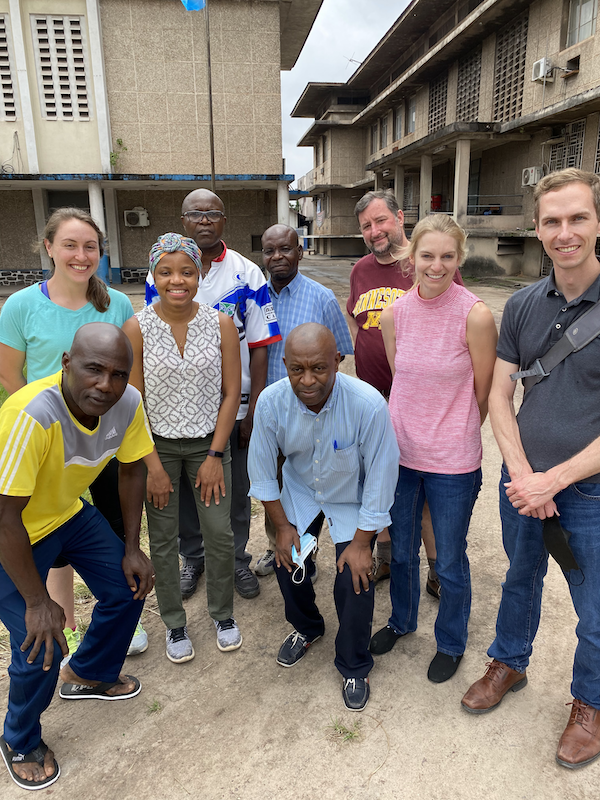
Jessica: When students join our group, they’re not just joining a single project, they’re entering a unique community. They get to see all of the intersecting projects, many using the same methods or overall approach, but are perhaps different pathogens or in different countries, under different PIs. In some ways our work is translational as we’re often working with large clinical samples from human based studies, in all of the areas we work, to understand epidemiology or pathogenesis. Our science is in the service of clinically relevant, or public health population health-relevant questions. I think that’s why a lot of people want to work with us.
Jon: The lab allows for a beautiful cross collaboration and expansion of ideas and that are not possible when you have isolated, siloed labs. And, the lab has grown bigger than UNC, as more of a virtual lab community, sharing people, projects, information, and lab meetings across institutions, in the U.S. and U.K. But we all come together to function under one umbrella, to do cool science, team science, that’s process driven.
Jonathan: Learners who are curious and open to new opportunities thrive in IDEEL. The diversity of research projects and questions is invigorating. Learning new things is so much easier when you trust your colleagues and enjoy working together. This is a key feature of the environment we enjoy in IDEEL.
How does IDEEL demonstrate the capacity building component of IGHID’s mission?
Jon: I would say we’ve established ourselves as more of a presence in the field, as we try to complete as much as we can in country, rather than here. And we do this as a group. We’ve started labs in multiple countries to facilitate our work. For instance, we’re doing a lot of sequencing in country, and we’re really trying to help train African scientists. I just had a Kenyan postdoc, Jonathan is working with an Ethiopian postdoc, Ashenafi Assefa. And, we have Congo students coming as part of a new Gates-funded initiative.
Jonathan: I’ll add that in any given week, we often have one or two trainees or collaborators visiting from our partner sites abroad. This is ostensibly to provide training opportunities, but in reality, we at IDEEL benefit from their stays the most. Just last week, we had partners visiting from Tanzania and Ethiopia who led the discussion in our lab meeting, and gave us great feedback about how we can work together to conduct truly collaborative research and capacity building. I’ve learned so much from our visiting colleagues about their home countries, and the opportunities and challenges they face. Plus, it’s just fun to get to know people from around the world.
Tell us about some of your work:
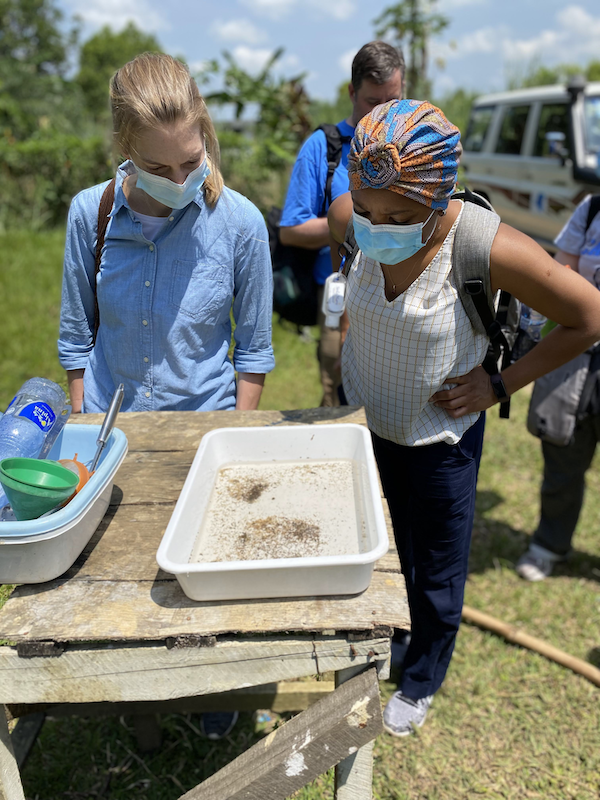
Jon: The work of this team primarily focuses on malaria, including studies of cellular biology, genomics, translational and spatial epidemiology. This is still a disease that kills hundreds of millions of people a year, and evolutionarily, it’s the most interesting pathogen in the world. How it co-evolves with the human host and co-evolves with the mosquito vector is remarkable. And it really poses tremendous challenges in terms of control measure. But our investigators have conducted a range of work on many other pathogens including Trypanosoma cruzi (the agent of Chagas disease), hepatitis B and C viruses, syphilis, and illnesses transmitted by ticks (e.g. Rickettsia). They also are studying anti-microbial resistant bacteria.
Emily: I conduct research with collaborators in Uganda and Malawi on how to leverage diagnostic tools to improve antimicrobial stewardship and in turn address the global threat of antimicrobial resistance. Clinically, I attend on the General Consult and Antimicrobial Stewardship services at the hospital and see patients in the ID clinic at Eastowne.
Peyton: My research focuses on hepatitis B prevention in the Democratic Republic of Congo (DRC). This work came about thanks to collaborations that Steve Meshnick established with colleagues at the DRC Ministry of Health. Due to successful mapping of malaria using national survey samples, ministry officials approached Steve to map hepatitis viruses to improve access to diagnostics and treatment options. Alongside our UNC/DRC/Albert Einstein College of Medicine hepatitis B research group, I lead studies primarily involving the prevention of mother-to-child transmission but also related to improving our understanding of and prevention of household transmission. I am passionate about improving access to life-saving vaccines such as the birth-dose hepatitis B vaccine in DRC and other low-resource settings.
What are your plans for the future?
Emily: I hope to continue doing more of what I am doing now! I recently received a career signature for differentiation of viral and bacterial infection among children with acute respiratory illness in Uganda, so I am excited to start working on that in the near future.
Peyton: I plan to continue doing what I love, which is advocating for global equity in child health via vaccination-focused research. I hope to see universal access to hepatitis B birth-dose vaccination in the next five years, and I hope to work myself out of the hepatitis field as elimination goals are met in DRC, and throughout SSA. My favorite part of the job is working with trainees from all backgrounds who enhance my own learning.
What is your favorite motto or quote?
Emily: “Do good works and don’t worry about the rest.”
Peyton: “I can do things you cannot, you can do things I cannot; together we can do great things.” – Mother Theresa
Jon: “It is amazing what you can accomplish if you do not care who gets the credit.” – Harry S. Truman
The Institute for Global Health & Infectious Diseases (IGHID) attracts people who are driven to make big change. From principal investigators and grant managers to regulatory specialists and study coordinators, everyone has an important role to play in what we do around the world. We are pleased to highlight the work of the people who proudly serve IGHID.
